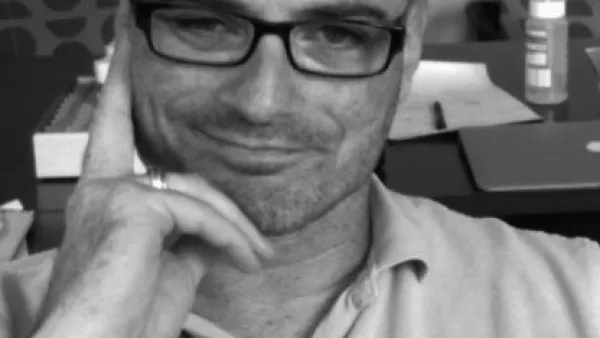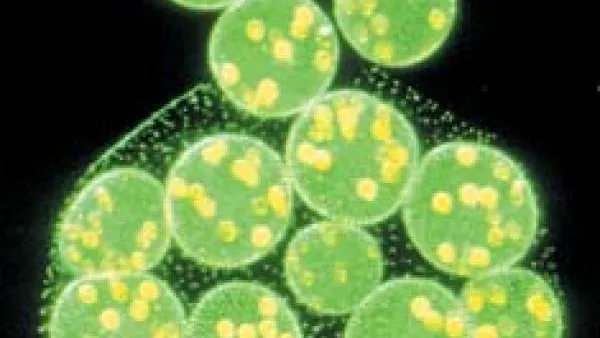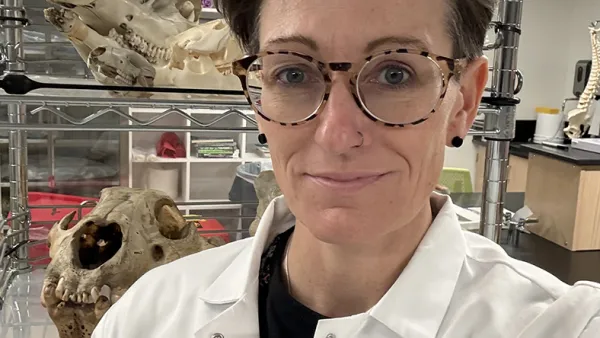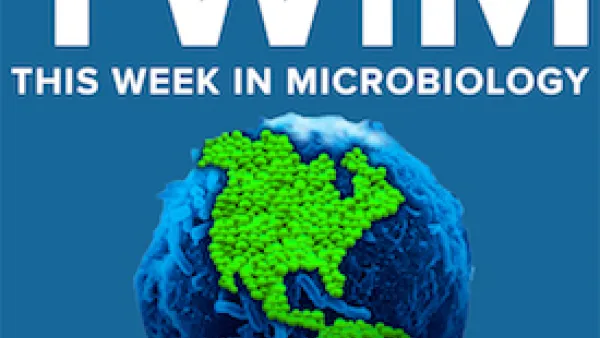After many years and different roles in the Biology Department at WashU, Ben Wolf rejoined the team as Manager of the Jeanette Goldfarb Plant Growth Facility in September 2023.

During his PhD studies, he connected with biotech entrepreneurship groups at WashU’s medical campus including The BioEntrepreneurship Core and Sling Health. The knowledge he developed thorough this supportive environment helped him launch his career in the biotech industry and co-found two companies after finishing his degree. Root Cellar Hydroponics, LLC, an indoor grow operation located in a 1,500 square foot commercial basement and nearby greenhouse, supplied local restaurants with leafy greens such as kale, Swiss chard, herbs, and a variety of lettuces. The facility used lighting created by his other company, Engine 2 Photonics, LLC, where custom lighting circuit boards and casings were designed, sent out to be manufactured, then put together and installed.
Wolf was aiming to bootstrap Root Cellar Hydroponics, using resources from the founding members, grants, and supporters to grow the company by bringing in revenue and reinvesting that revenue repeatedly. Unfortunately, the COVID-19 pandemic stalled the process. Though not all restaurants closed, the industry slowed significantly, leaving the founders no ability to scale the business. It was time to pivot to something new. Wolf took a position as a project lead at a local startup Pluton Biosciences, Inc, where he spent three years studying the use of microbes in problem solving.
When Wolf heard about Mike Dyer’s retirement as Greenhouse Manager at WashU, he decided to apply. He already had a variety of experiences with the greenhouse, first as a grad student, then as a part-time horticulturist, then with Pluton when they rented space in the facility. Wolf is thrilled to be back, beaming as he talks about his fantastic team of experienced horticulturists Hammy Sorkin, Michael Stephan, and Keiko Farah. They work together to address the needs of research projects in the Biology Department. He cites the positive working relationship between the greenhouse staff, faculty, lab staff and students as his number one reason for loving his new position.
Wolf is learning a lot about growth chambers, rooms in which plants are grown under tightly controlled conditions, stating that each machine has its own personality. Some chambers are big complainers, some are stubborn, some are workhorses with a great work ethic. Chamber crops include Arabidopsis, tomato, and brassica. Greenhouse crops include corn, clover, rice, Plantago, and grasses. The facility houses an arid plant collection including cacti and succulents, along with a variety of plants that are rare, interesting and fun: pineapple, coffee, cacao, the touch sensitive plant mimosa, carnivorous plants, aloes, orchids, pitcher plants and air plants.
Outreach is another aspect of the job that is meaningful for him. The greenhouse has a plant collection used for teaching classes, such as Barbara Schaal’s Plants, People and the Environment, and Richard Vierstra’s Secret Lives of Plants, where students learn to propagate plants, how greenhouses work, and how plants grow and evolve. Some classes use growth chambers to grow plants for lab experiments as well.
An annual plant sale each spring reaches people on campus within the Biology Department and beyond. This year, greenhouse staff plans to expand the offerings to include more native wildflowers among the usual bedding plants, veggies and herbs. The money will be reinvested to improve the facility and to provide community-building experiences with fun events, similar to the salsa contest and party of years past. A free plant shelf in the hallway outside offers odds and ends for people to take and encourages people to share their leftover plants as well.
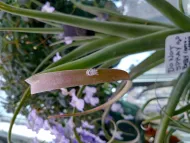
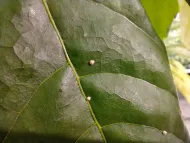
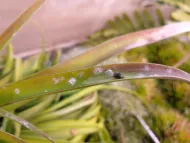
An integrated pest management plan avoids restricted use pesticides in favor of good cultural practices and natural options. Rotating crops in the chambers and keeping things clean goes a long way, along with biological controls like parasitoid wasps, predatory nematodes and mites that target aphids, B. thuringiensis spores, lacewings, and insecticidal soap. Staff work together to brainstorm complex, well thought out systems. For example, they keep a cotton plant with the sole purpose of housing unwanted aphids to feed the wasp population so that the wasps can fly around and find the destructive aphids on other plants and eliminate them. Wolf wants to improve existing conditions and offer more services such as crossing plant varieties to create new strains, and provide education on best practices for harvesting and maintaining specimens. Staff has already experimented to create new varieties of aloe plants.
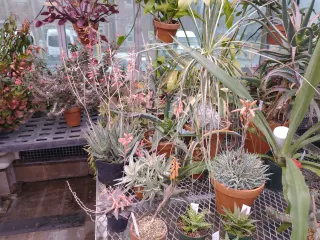
Six new growth chambers will replace three old ones on the second floor, expanding the ability to grow with improved energy efficiency and additional environmental control. Three existing chambers on the third floor will be retrofitted with new LED lights, allowing more precise control that will enable them to be used for circadian experiments. Tissue culture chambers will also be resurrected. The Biology Department is expanding. New faculty means new experiments and the need for more efficient space to carry them out.
In his free time, Wolf has several personal hobbies and interests. He builds furniture and small structures out of reclaimed wood. He gardens both indoors and outside, and has his own greenhouse. He also loves rock climbing, hiking, and pretty much anything outdoorsy. Stay tuned for more information about a hiking group he wants to start for the Biology Department!
To learn more about the greenhouse’s plants, services and facilities, check out https://sites.wustl.edu/jeanettegoldfarbplantgrowthfacility/.
